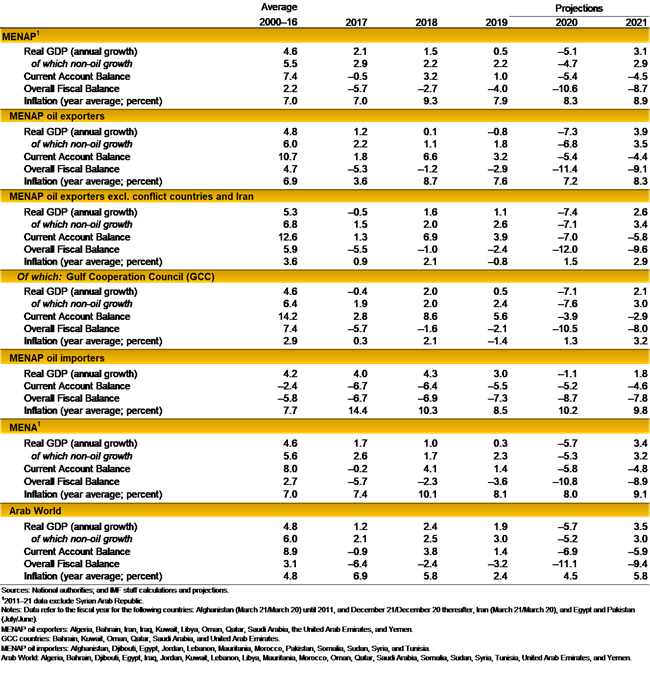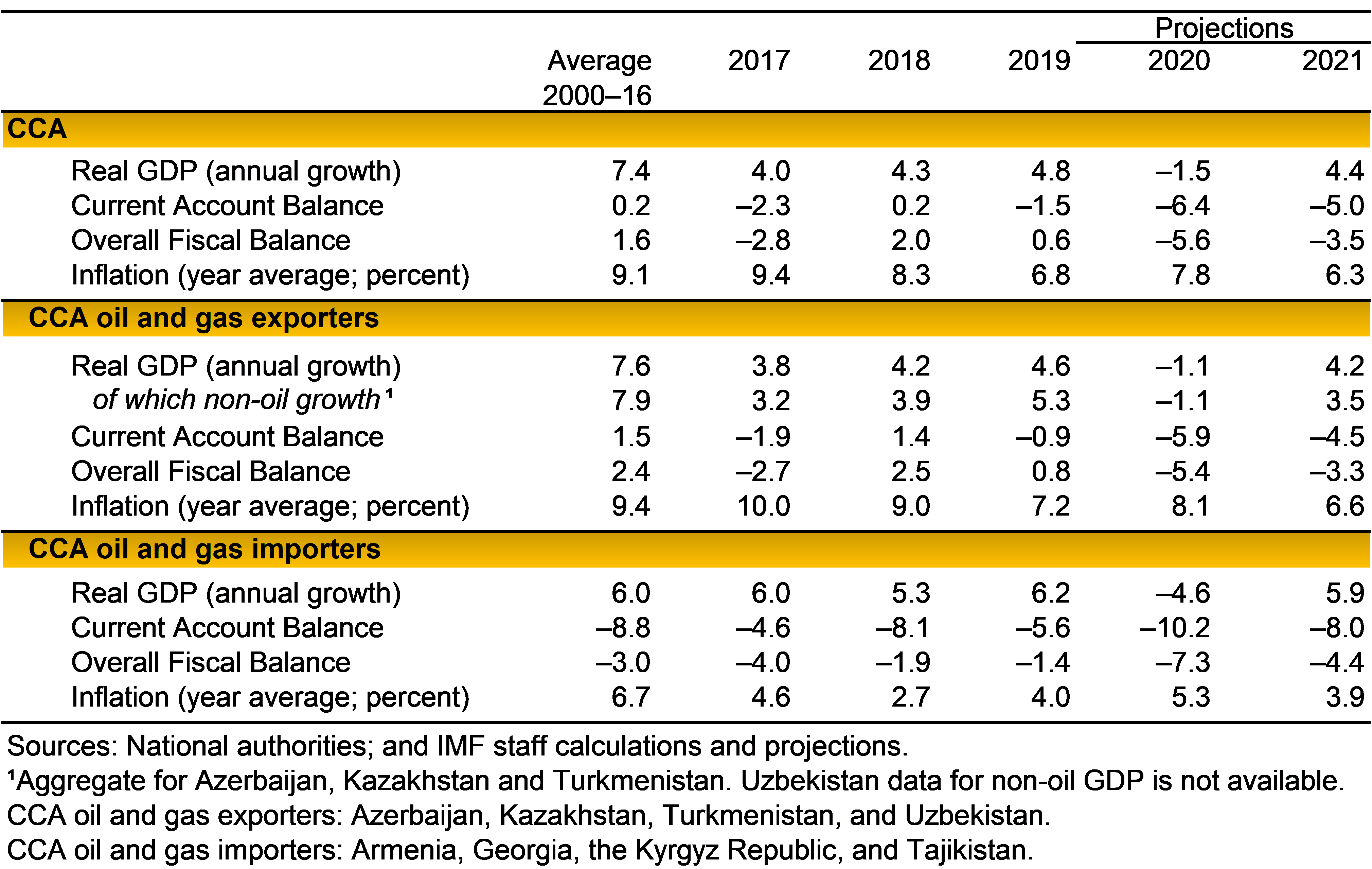
Middle East and Central Asia
Regional Economic Outlook Update: Middle East and Central Asia
July 2020
The Middle East and Central Asia (MCD) region has reacted to the global COVID-19 pandemic with swift and stringent measures that have saved lives. However, these policies have also had a large impact on domestic economic activity. With several countries in the region beginning reopening in past weeks, and a recent uptick in activity, rising infection numbers may pose risks. A sharp decline in oil prices together with production cuts among oil exporters and disruptions in trade and tourism added further headwinds. As a result, growth in the region is now projected at –4.7 percent in 2020, 2 percentage points lower than in April 2020.
Read Full Report
The Middle East and Central Asia (MCD) region has reacted to the global COVID-19 pandemic with swift and stringent measures that have saved lives. However, these policies have also had a large impact on domestic economic activity. With several countries in the region beginning reopening in past weeks, and a recent uptick in activity, rising infection numbers may pose risks. A sharp decline in oil prices together with production cuts among oil exporters and disruptions in trade and tourism added further headwinds. As a result, growth in the region is now projected at –4.7 percent in 2020, 2 percentage points lower than in April 2020. The unusually high level of uncertainty regarding the length of the pandemic and its impact on firm closures, the resulting downside risks (including social unrest and political instability), and potential renewed volatility in global oil markets dominate the outlook. The pandemic will continue to test countries’ health capacity and economic resilience. While ensuring strong health systems remains the immediate priority, governments should also focus on supporting the recovery and setting up resilient and well-targeted social safety nets. As the pandemic wanes, countries should facilitate recovery by easing the reallocation of workers and resources, as needed, while resuming gradual fiscal adjustment and rebuilding policy buffers. Multilateral support can play a key role in helping countries surmount these shocks.





